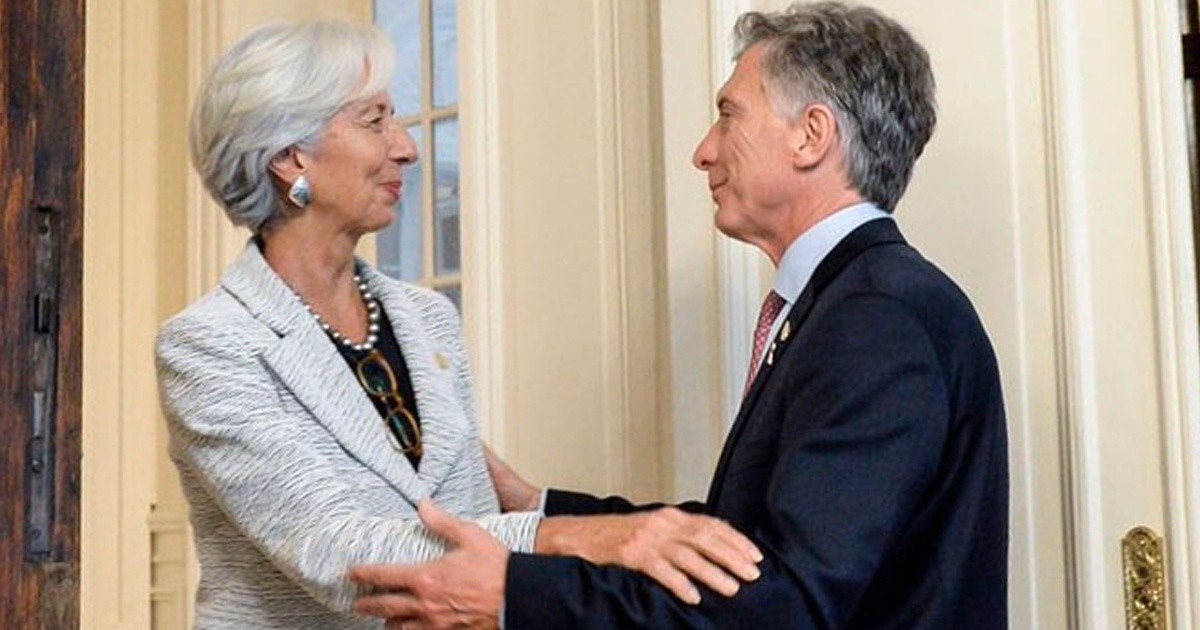
The International Monetary Fund (IMF) concluded on Wednesday that the economic program implemented by the government of Mauricio Macri and for which a loan of 57 billion dollars was approved – of which 44,000 were finally delivered – “did not meet the objectives of restoring confidence in fiscal and external viability.” According to the document prepared by the Board of Directors of the multilateral organization, “the strategy and conditionality” of the exceptional access to financing program “were not strong enough to address Argentina’s deep-seated structural problems, including fragile public finances, dollarization, high inflation, weak transmission of monetary policy, a small domestic financial sector and a narrow export base.”
The loan that Argentina received in June 2018 was the largest in the history of the organization and received the support of the board, controlled by the G7 powers.
The text also indicates that the Stand By Agreement signed with Argentina in 2018 was “consistent” with the agency’s policies and procedures, but acknowledged that “the application of some of these policies implied considerable judgment.” While standard procedures for assessing risks to the Fund were followed, Directors felt that broader risks might have appeared more prominently, and the Board might have been involved earlier and deeper in the process,” the report states. Recalling that the agency’s Executive Board approved in June 2018 the “largest reserve arrangement in the Fund’s history”, the report concluded that “the relevant policies and procedures of the Fund, including those related to financing, safeguards and programme design, were complied with”; but clarified that the “program did not meet its objectives, despite the important modifications of economic policies.” The increase in reimbursements, together with the flight of capital from residents, put considerable pressure on the exchange rate. Despite exchange rate interventions beyond the provisions of the program, the exchange rate continued to depreciate, increasing inflation and the peso value of public debt, and weakening real incomes, especially of the poor,” he said. According to the results of the audit, the program “did not meet the objectives of restoring confidence in fiscal and external viability and, at the same time, promoting economic growth.”
The original program was $50 billion, and then expanded to $57 billion, of which the government at the time took about $44 billion.
In this regard, Directors regretted that the program did not meet its objectives of restoring market confidence, reducing external and fiscal imbalances, reducing inflation, and protecting the most vulnerable segments of the population. Directors acknowledged that “the emphasis on government ownership may also have led to overly optimistic forecasts, weakening the strength of the program” and considered that standby created “substantial financial and reputational risks” for the Monetary Fund.They also stressed that “greater burden-sharing with other official creditors would have provided additional financing” and “broader support from the international community could have strengthened trust.” While they generally agreed that the stand-by arrangement was “consistent with the Fund’s policies and procedures,” they felt that “the Board may have been involved earlier and more deeply in the process.” Directors highlighted several lessons for Fund-supported programs, such as the need to incorporate “realistic assumptions”; that programmes are tailored to country circumstances, including political economy considerations, which could involve the use of unconventional measures if standard macroeconomic policies are unlikely to work. Also, that the risk analysis should be clearly presented and communicated to the Board; that a fair evaluation of possible better policy options and programme outcomes is not prevented; effective external communication; and appropriate burden-sharing when concluding exceptional access agreements.
"El reclamo puede ser genuino, pero construido sobre una mentira", apuntó el presidente Javier Milei…
El gobernador de la provincia de Buenos Aires, Axel Kicillof, encabezó un acto en Ensenada…
El diputado nacional de La Libertad Avanza, José Luis Espert, expresó su confianza en la…
Tras la masiva reaparición de Cristina Fernández de Kirchner, el presidente Javier Milei apuntó contra…
El principal propósito de la nueva comisión es evaluar los recursos humanos en el Senado,…
En una medida que busca redefinir las condiciones de los seguros de automóviles en Argentina,…
Esta web usa cookies.